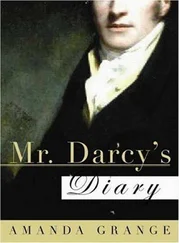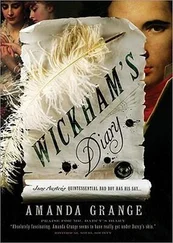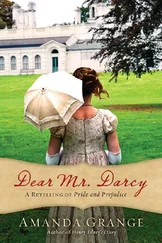Louis Barbé - Kirkcaldy of Grange
Здесь есть возможность читать онлайн «Louis Barbé - Kirkcaldy of Grange» — ознакомительный отрывок электронной книги совершенно бесплатно, а после прочтения отрывка купить полную версию. В некоторых случаях можно слушать аудио, скачать через торрент в формате fb2 и присутствует краткое содержание. Жанр: foreign_antique, foreign_prose, на английском языке. Описание произведения, (предисловие) а так же отзывы посетителей доступны на портале библиотеки ЛибКат.
- Название:Kirkcaldy of Grange
- Автор:
- Жанр:
- Год:неизвестен
- ISBN:нет данных
- Рейтинг книги:5 / 5. Голосов: 1
-
Избранное:Добавить в избранное
- Отзывы:
-
Ваша оценка:
- 100
- 1
- 2
- 3
- 4
- 5
Kirkcaldy of Grange: краткое содержание, описание и аннотация
Предлагаем к чтению аннотацию, описание, краткое содержание или предисловие (зависит от того, что написал сам автор книги «Kirkcaldy of Grange»). Если вы не нашли необходимую информацию о книге — напишите в комментариях, мы постараемся отыскать её.
Kirkcaldy of Grange — читать онлайн ознакомительный отрывок
Ниже представлен текст книги, разбитый по страницам. Система сохранения места последней прочитанной страницы, позволяет с удобством читать онлайн бесплатно книгу «Kirkcaldy of Grange», без необходимости каждый раз заново искать на чём Вы остановились. Поставьте закладку, и сможете в любой момент перейти на страницу, на которой закончили чтение.
Интервал:
Закладка:
To break the distressing silence which followed the gloomy reply, one of the attendants inquired where his Majesty wished preparation to be made for celebrating Christmas, which was near at hand. With a ‘disdainful countenance,’ as though the matter were one with which he had no concern, ‘I cannot tell,’ he answered, ‘choose you the place. But this I can tell you; before Christmas you will be masterless, and the realm without a king.’ And he seemed so convinced of the truth of his prediction that, although there was no sign of approaching death about him, none dared contradict him for fear of his anger.
Next day the wretched King left Halyards, accompanied by young Kirkcaldy. The Treasurer himself joined them a little later; and both father and son were amongst the attendants who stood about the dying monarch in the palace of Falkland, on the 13th of December 1542, and vainly strove to soothe the mighty grief which found expression in the one despairing cry: ‘Fie! fie! Is Oliver fled – and taken? Then all is lost – all is lost!’
II. THE TRAGEDY AT ST ANDREWS
William Kirkcaldy, who makes his first appearance in the pages of history as the attendant of James V. during the brief interval between the shameful rout of Solway Moss and the last melancholy scene at Falkland, is usually represented as being but a child at the time. No record indicates the year of his birth; but it is assumed to have taken place about 1530. That, however, does not seem to tally with the known dates of several events in which he and other members of his family bore a part.
In the first place, if it be not impossible, it may be looked upon as at least improbable, that a lad of twelve was given to James as an attendant, under the peculiar circumstances of his visit to Halyards. It is still less likely that, whether the will attributed to James V. be genuine, or fraudulent, as was afterwards maintained, such a mere child should figure amongst the witnesses to it, and should, as the document, under any circumstances, fully establishes, have been allowed to be present at the King’s last moments. Nor does it agree with the description of Lady Grange as ‘an ancient matron,’ that the eldest of her nine children should have been so young at the time.
As we have already seen, it is mentioned by Melville that, as early as 1542, a younger brother, James Kirkcaldy, had obtained ‘the ward and marriage of Kellie in Angus,’ and that his father, the Treasurer, had ‘gone there to take possession thereof’ whilst the negotiations with Henry VIII. were still pending. The difficulty of believing that the betrothal of James Kirkcaldy – if, indeed, the passage do not actually refer, as some have thought, to his marriage – took place when he was at most but eleven years old, naturally suggests doubts as to the accuracy of the date assigned to his elder brother’s birth. Such early matrimonial engagements were not, it is true, unknown, or even uncommon, in those days; but that the intended bride, at least, was no longer in her girlhood may fairly be inferred from the details of the discreditable plot against the Treasurer, in which the Prior of Pittenweem made her play a part.
All that can be ascertained with regard to Kirkcaldy’s education is supplied by a letter, in which Randolph, the English agent, writing to him, makes allusion to their early acquaintance, as students, in France, at the time that the University of Paris was presided over by the Cardinal of Lorraine. As Randolph was born in 1523, he would have been Kirkcaldy’s senior by seven years, a disparity of age which still further diminishes the plausibility of the theory that the latter was born in 1530. Yet another objection to it may be gathered from a passage in Master Randolph’s Fantasy , a poem recording the events of what is known as the Round About Raid, in 1566. Sir William Kirkcaldy is mentioned in it, amongst the rebellious nobles; and the special reference to his ‘horye head’ would unquestionably seem to imply that he was more than thirty-six years old at the time. Finally, it is known that Kirkcaldy’s only daughter, Janet, was married to the Laird of St Colme’s Inch at the beginning of the year 1561; and it is assuredly not easy to make that fact accord with the assumed date of her father’s birth.
Such are the difficulties in the way of accepting Grant’s opinion, that Kirkcaldy’s birth ‘probably took place about the year 1530,’ or Froude’s later statement that ‘the Treasurer’s eldest son’ was ‘a boy of about seventeen,’ in the year 1546. None of the arguments adduced may be convincing if considered singly; but, when all are taken together, they assume sufficient weight to justify the supposition that Kirkcaldy was at least as old as his fellow-student, Thomas Randolph; that he was a young man of over twenty when he accompanied his King from Halyards to Falkland; and that he was, not a lad of sixteen or seventeen, but a man approaching his thirtieth year at the time of the important event which has now to be chronicled as the next in his career, and in which he was destined to play important parts that would scarcely have been entrusted to a ‘boy.’
It is possibly owing to his absence on the Continent, for the prosecution of his studies, that, after James V.’s death, young Kirkcaldy’s name disappears for a time from the chronicles of the age. When mention of him is again made, it is in connection with an event which, even in those troubled days, when men were but too familiar with deeds of violence, sent a thrill of terror through the land, and which still stands out in terrible prominence amongst the most striking examples of the lawlessness of our forefathers, of the contempt which they displayed for human life in the furtherance of their political schemes, and of the disregard for the fundamental precepts of morality which, by a strange inconsistency, they were able to reconcile with an earnest zeal for religion. It is as one of the assassins of Cardinal Beaton that William Kirkcaldy first takes an active part in the political and religious struggle in which he was destined to figure so conspicuously.
By what means Beaton had risen to power, with what uncompromising fixity of purpose, and in what cause he wielded it, there is no necessity for recalling. Neither would it serve any good purpose to re-open the controversy which has raged about his memory. Even if it were possible to attempt an impartial and unbiased estimate of his work and character without being confronted at the outset by the difficulty of obtaining any evidence, either for impeachment or for defence, but that of witnesses whose avowed partisanship at once marks them as untrustworthy, there would be but little prospect of a definitive settlement of the vexed question so long as one side endorses the sentiments of him who wrote ‘merrily’ of the ‘godly fact’ of his murder, whilst another holds him up to veneration as a martyr.
In 1546, the Cardinal had attained a position of almost absolute authority in the kingdom; but he had also incurred the hatred of powerful and determined men, by whom his death was resolved upon, and who were only waiting for a favourable opportunity to carry out their desperate designs. Foremost amongst them were the Kirkcaldys. Whatever may have been the motives by which the other conspirators were swayed, it seems impossible to doubt that the late Treasurer and his family were actuated by a desire to be revenged, rather upon the Statesman who had thwarted their policy than upon the Churchman who opposed their religion. As early as 1544, long before the execution of Wishart had occurred to lend a semblance of wild justice to the plot against the Cardinal, it had been reported by the Earl of Hertford to Henry VIII., that ‘the Larde of Grange, late Thesaurer of Scotland, wolde attempt eyther to apprehend or slee him at some time when he sholde goe through the Fyfeland, and, in case he colde so apprehend him, wolde delyver him unto His Majesty.’
Читать дальшеИнтервал:
Закладка:
Похожие книги на «Kirkcaldy of Grange»
Представляем Вашему вниманию похожие книги на «Kirkcaldy of Grange» списком для выбора. Мы отобрали схожую по названию и смыслу литературу в надежде предоставить читателям больше вариантов отыскать новые, интересные, ещё непрочитанные произведения.
Обсуждение, отзывы о книге «Kirkcaldy of Grange» и просто собственные мнения читателей. Оставьте ваши комментарии, напишите, что Вы думаете о произведении, его смысле или главных героях. Укажите что конкретно понравилось, а что нет, и почему Вы так считаете.












